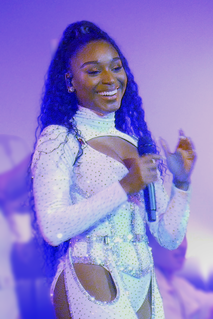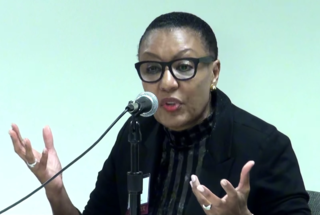A Quote by Faith Ringgold
I had this idea that I wanted to do this mixture of visions of African American women and visions of African American men. And call it 'The Men' and call it 'The Women' and show different faces of these two people.
Related Quotes
The potential significance of Black feminist thought goes far beyond demonstrating that African-American women can be theorists. Like Black feminist practice, which it reflects and which it seeks to foster, Black feminist thought can create a collective identity among African-American women about the dimensions of a Black women's standpoint. Through the process of rearticulating, Black feminist thought can offer African-American women a different view of ourselves and our worlds
Michael Jackson fundamentally altered the terms of the debate about African American music. Remember, he was a chocolate, cherubic-faced genius with an African American halo. He had an Afro halo. He was a kid who was capable of embodying all of the high possibilities and the deep griefs that besieged the African American psyche.
I had very supportive parents that made the way for me, even at a time when there were very few women - no women, really; maybe two or three women - and very few, fewer than that, African-American women heading in this direction, so there were very few people to look up to. You just had to have faith.
It was easy to persecute me without people feeling ashamed. It was easy to vilify me and project me as a woman who was not following the tradition of a 'good African woman' and as a highly educated elitist who was trying to show innocent African women ways of doing things that were not acceptable to African men.








































